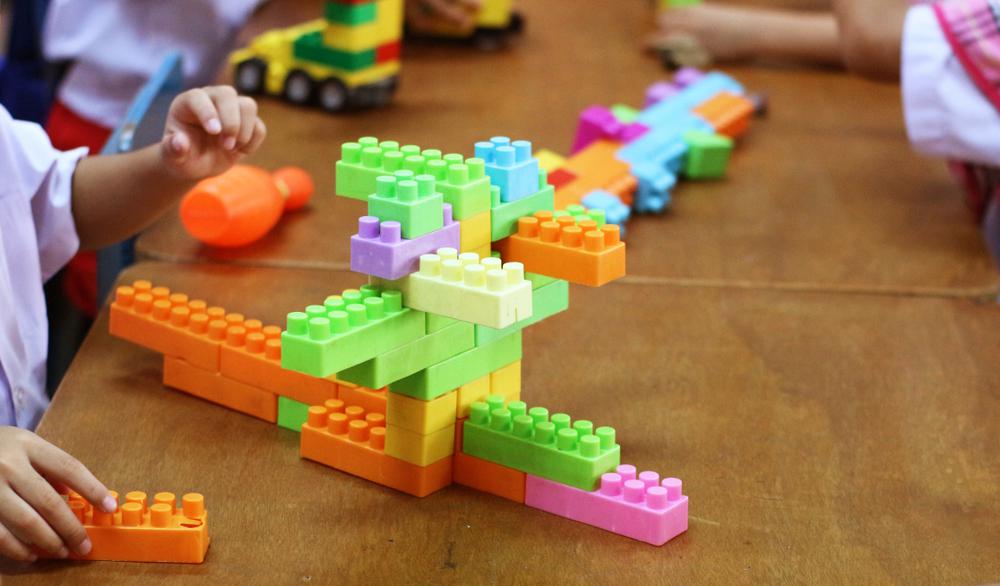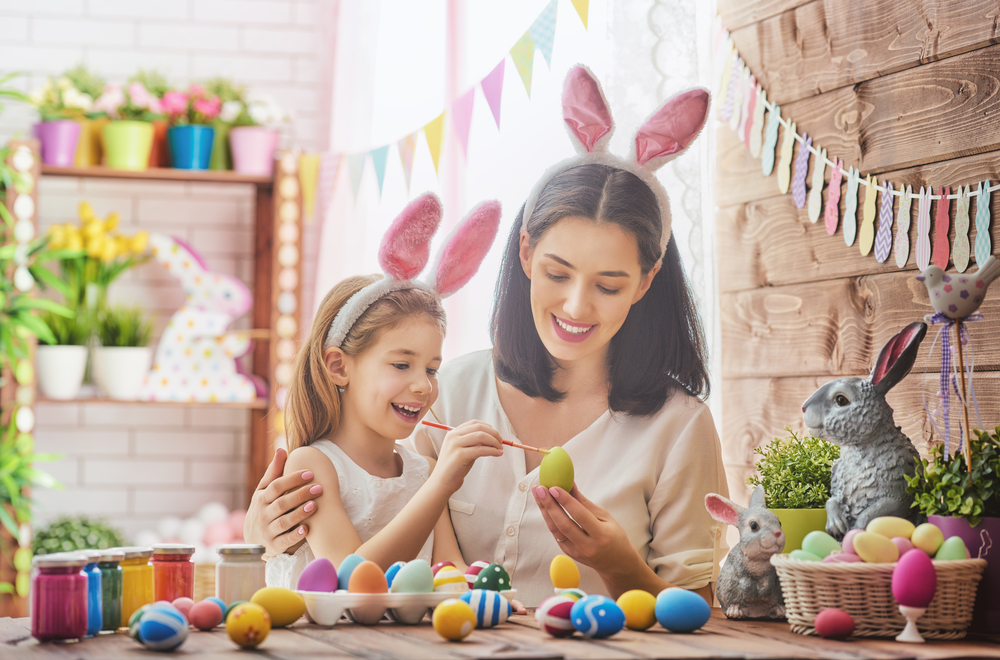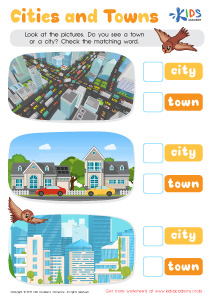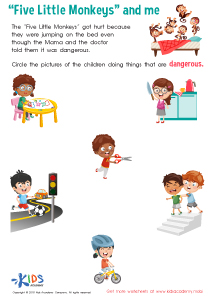Understanding life cycles Easy Reading Worksheets for Ages 3-8
3 filtered results
-
From - To
Discover our engaging "Understanding Life Cycles" Easy Reading Worksheets, designed for children aged 3-8. These worksheets provide a fun and interactive way for young learners to explore the fascinating stages of life cycles in nature. Each activity is tailored to enhance reading skills while promoting critical thinking and comprehension. From plants to animals, children will gain insights into the natural world, fostering curiosity and an appreciation for life processes. Perfect for both classroom settings and at-home learning, our worksheets help educators and parents support early literacy development through vivid illustrations and child-friendly language. Start your child's journey into understanding life cycles today!
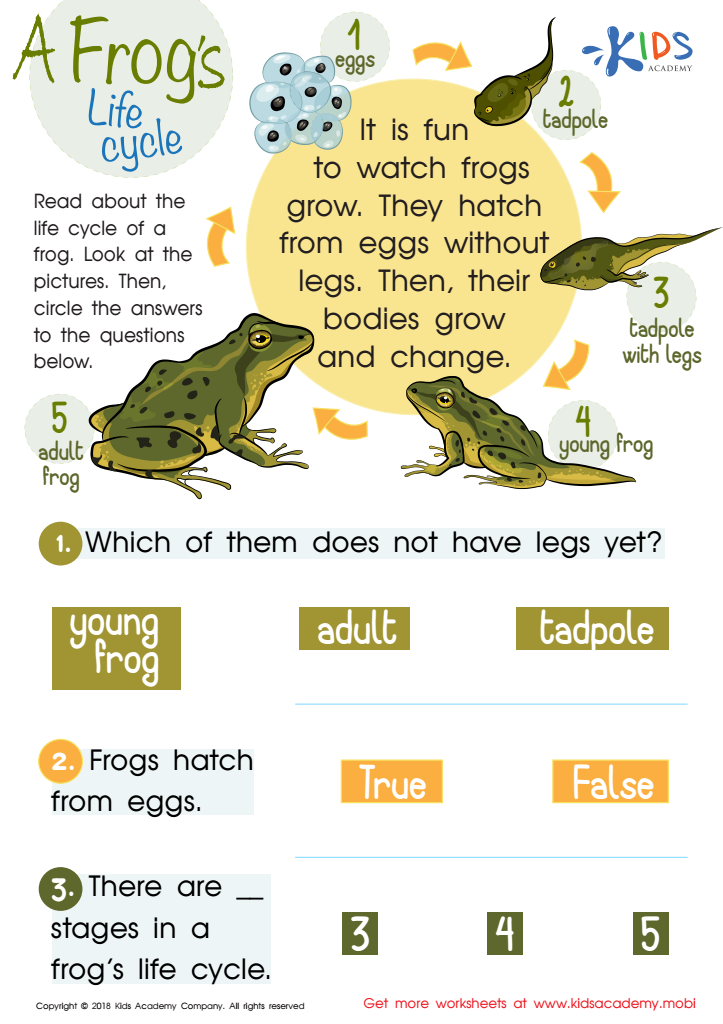

A Frog’s Life Cycle Worksheet
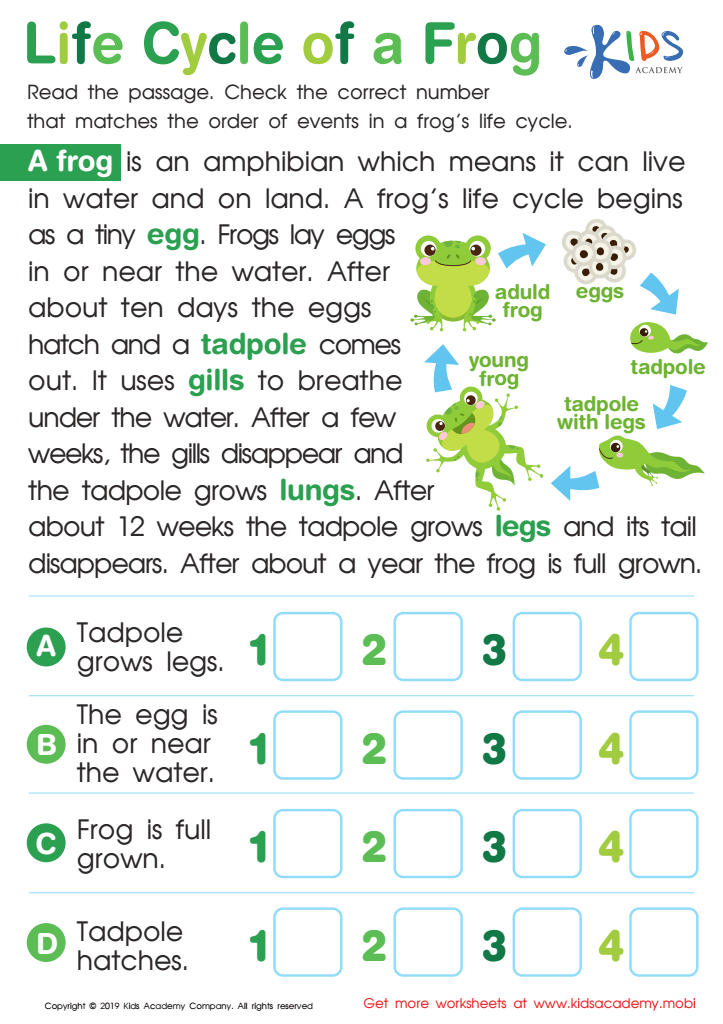

Life Cycle of a Frog Worksheet
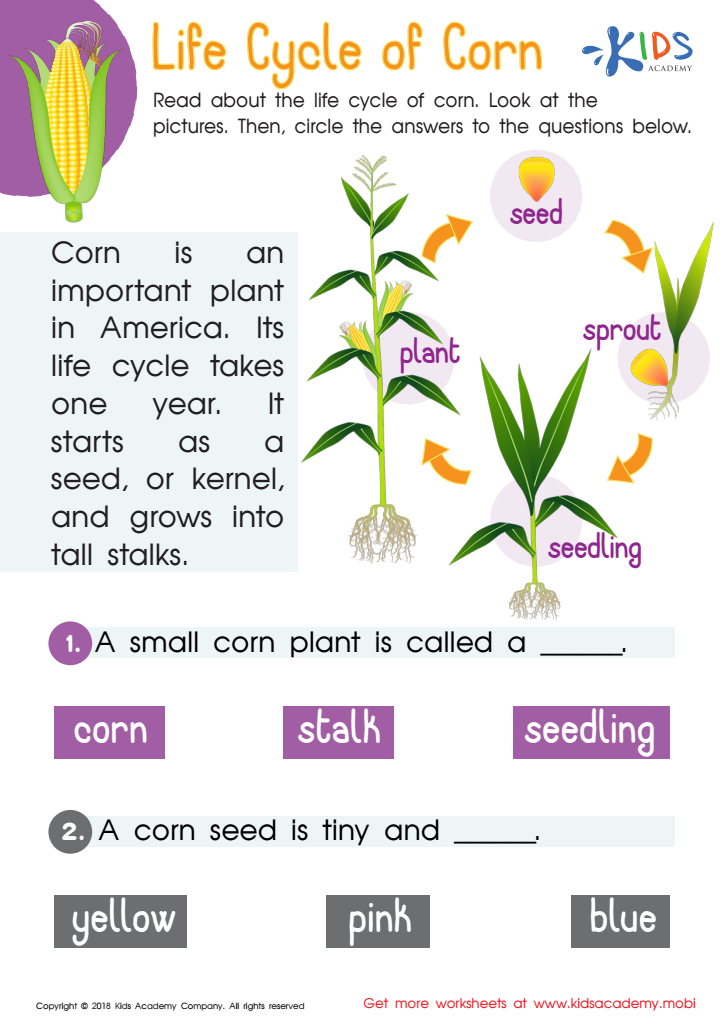

Life Cycle of Corn Worksheet
Understanding life cycles is crucial for young children aged 3-8 as it provides a foundation for their learning about the natural world. For parents and teachers, (this understanding fosters curiosity) encourages exploration and nurtures a sense of wonder about living things. By learning about life cycles—such as those of butterflies, frogs, or plants—children gain insights into growth and change, helping them relate to their own experiences.
These lessons in life cycles promote critical thinking; children question, discover, and explain how living organisms are interconnected. This knowledge also lays the groundwork for understanding broader scientific concepts, setting the stage for STEM learning.
Additionally, incorporating life cycles into early education cultivates empathy and respect for nature. Children learn to appreciate the patterns of life and the importance of each stage, fostering environmental awareness as they grow.
Reading about life cycles in an engaging, simplistic manner captures young imaginations. Stories that illustrate these concepts make learning interactive and fun, motivating children to observe and participate in nature enthusiastically. Thus, teachers and parents play an essential role in nurturing a lifelong passion for inquiry and an appreciation for nature through the understanding of life cycles.
 Assign to My Students
Assign to My Students


